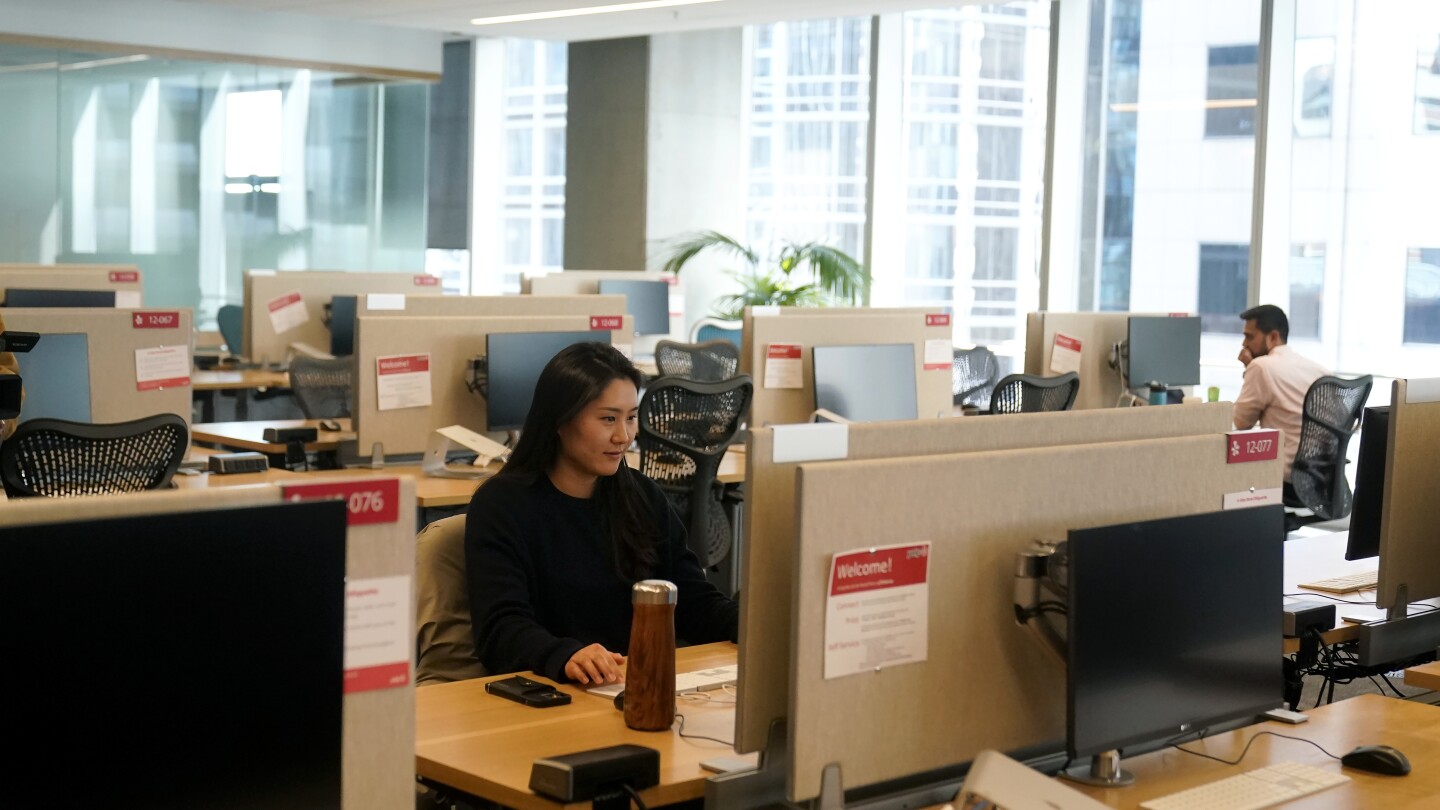[…]
Workers have since begun to return to the office in waves, at least for part of the week, and navigating that transition is an ongoing and significant hurdle for employers and workers alike. And many simply cannot fathom a return to the pre-COVID status quo, changing how companies approach their staffing needs.
Retaining employees who don’t want to work in person is an issue for companies, but relatively few employers (13%) have introduced new incentives that would make employees more satisfied with it, according to a newly released poll conducted by NORC at the University of Chicago.
About 3 in 4 human resources representatives say that retaining employees who don’t want to work in the office is a problem — including 19% who call it a “major problem.” Another 54% of HR representatives call it a minor problem. And only about one-third of HR professionals say employees at their workplace are “extremely” or “very” happy about returning to the workplace.
“Once workers discovered that (remote work could be) less expensive and… make their life a little easier, they just wanted to keep doing it, even once the pandemic began fading away,” Marjorie Connelly, senior fellow with NORC’s Public Affairs & Media Research department, told The Associated Press.
[…]



Yeah that makes sense. The first point (real estate conglomerates) I get. But like you said, that doesn’t explain why the tenants (employers) are pushing for it. Is it really just the cruelty and waste that’s driving the employers? Also, are companies/managers really like that? That’s awful.
I suppose I’m fortunate we don’t (and won’t) have a mandatory return to office. However, I still like to go in whenever I can because it’s a good walk, our office is beautiful, and our chef makes tasty and healthy lunches. I appreciate that we’re keeping things so flexible. I do have more fun on the days more people come in!
Vitriol towards office environments and their overlords aside for a minute, here are a few of the positives the company gets from this:
There is wicked amounts of prestige in having a complex with your name on the marquee of the building. Client confidence skyrockets if you “Have a building” in a major metro.
Less ability for overemployment - you can guarantee the guy unable to get this one job finished at the office isn’t selling his spare time to the competition down the road.
More control over employee’s personal lives and psyche - if you can DEMAND that Mr. Jones be in the office instead of at his kid’s parent day lunch, and you have the building to DEMAND he report to, you’ve driven home the point to Mr. Jones that you own his life, and he is an accessory of your money making venture first, then a family man second. This can sometimes lead to the creation of unhealthy work-lifers who are extremely profitable to the firm. This is almost impossible to do when they’re at home and the oppression is harder to enforce.
It can actually be more cost effective, if you’re a large enough firm. Once you pass about 40-50 members, there are instances where you can save on things like data connectivity, equipment costs, and travel to trainings/client meetings. These costs vary wildly by industry, so the fiscal math follows suit. In many cases, it’s a cost-saving measure.
There are other factors - tax breaks, stipends from cities to occupy certain districts, nepotism, and social optics, but those are adjunct to the main purpose of getting employees back into a high-rise.